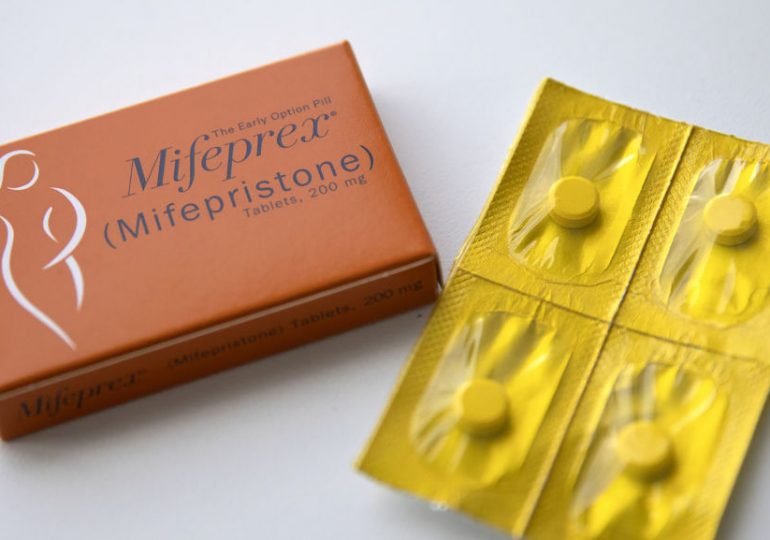Private citizens may soon be able to sue people who send abortion pills to patients in Texas, under a recently passed bill that furthers the state’s effort to crack down on abortion.
HB 7 passed both chambers of the Republican-controlled state legislature in recent days, and the bill now heads to the desk of Republican Gov. Greg Abbott, who has publicly expressed anti-abortion views and is widely expected to sign it into law. If he does, the law would go into effect in December, and would be the first of its kind in the country.
[time-brightcove not-tgx=”true”]
“Texas is a first mover here,” says Elizabeth Sepper, a professor at the University of Texas at Austin School of Law. “I think this is yet another tool that probably lots of states will take up and think about in 2026.”
Texas has one of the strictest abortion restrictions in the country: The state has banned abortion in almost all cases, and already allows private citizens to sue people, including providers, who help patients access an abortion after about six weeks of pregnancy. But HB 7 widens the scope of potential lawsuits even further by allowing private citizens to sue abortion pill manufacturers, providers, and others who send the medication to Texas for at least $100,000 in damages. Pregnant people receiving the medication to use themselves wouldn’t be held liable.
The $100,000 in damages could go in full to the pregnant person, the person who impregnated them, or certain close relatives. If someone else files such a lawsuit, they could receive $10,000, and the remaining sum would go to charity.
The awards, Sepper says, are “enormous.” “It creates, I think, a real possibility of essentially harassing lawsuits, fishing expeditions against folks,” she adds.
Anti-abortion activists have argued that the bill would protect women and fetuses. John Seago, the president of the anti-abortion group Texas Right to Life, applauds the bill’s passage, calling it “a phenomenal victory for the pro-life movement here in Texas.”
“It is the most deliberate and aggressive response to the radical trends we’ve seen on the pro-abortion side in the last three years that are mailing abortion pills into Texas and attempting to hide behind a new legal invention called shield laws,” he says, adding that HB 7 would help enforce existing Texas policies.
But abortion rights advocates and state Democrats have condemned the bill, likening it to a “bounty hunter law” that gives anyone the ability to tattle on people who help facilitate access to abortion pills. They have argued that the bill is an attempt to spark fear in out-of-state providers who are protected by abortion shield laws in their own states when sending the medication to patients in states with abortion restrictions.
Molly Duane, senior staff attorney at the Center for Reproductive Rights, calls HB 7 a “fear-mongering” piece of legislation. “They’re trying to scare Texans from seeking medication abortion,” Duane says. “But Texans aren’t scared.”
Medication abortion is the most common method of abortion in the country. And in the three years since the U.S. Supreme Court overturned Roe v. Wade, clearing the way for states to enact their own bans on abortion, advocates have said that abortion pills prescribed via telehealth have been a “lifeline” for many people living in states with restrictions.
“The extremist anti-abortion advocates who are behind the overturning of Roe, as well as this legislation, will stop at nothing to prevent every single abortion that’s happening in the country, and this is the next step in their long-term battle towards that goal,” Duane says. “But what we know is that people have always had abortions; they will always have abortion. People need abortions to save their lives. They need them to protect their families. They need them to protect their livelihood.”
Shield laws, versions of which have been enacted in 18 states and Washington, D.C., are intended to protect doctors providing medication or in-clinic abortions from their home state. The laws have led to clashes between states that have protected abortion and those that have banned it. Texas, for instance, filed a civil suit against New York Dr. Margaret Daley Carpenter for allegedly prescribing, via telemedicine, abortion pills to a Texas resident. Carpenter is also facing felony charges in Louisiana for allegedly prescribing abortion pills via telemedicine to a resident there. But New York Gov. Kathy Hochul has refused to extradite Carpenter, citing the state’s shield law.
Many states that have banned or restricted abortion have struggled to push back on shield laws and abortion pills, and Sepper says HB 7 is the latest iteration of the effort to do so. Whether other states follow Texas’ example and pass similar bills will depend, she thinks, on how effective HB 7 will be in reducing the use of abortion pills in the state, if Abbott signs the bill as expected.
If the bill is signed into law, Sepper expects that it will spark legal battles between states.
“HB 7 has a number of targets,” Sepper says. “One of those targets are people within the state of Texas to create a climate of fear about aiding anyone in accessing medication abortion. Another target are manufacturers of medication abortion. And then both health care providers who are out of state, who are using telehealth to distribute medication abortion in Texas, and also, frankly, the states they live in.”
“In a sense, HB 7 targets not just providers in other states, but in a fairly real sense, the more abortion friendly states that have laws that allow for abortion to be distributed pretty freely,” she says.
Leave a comment




